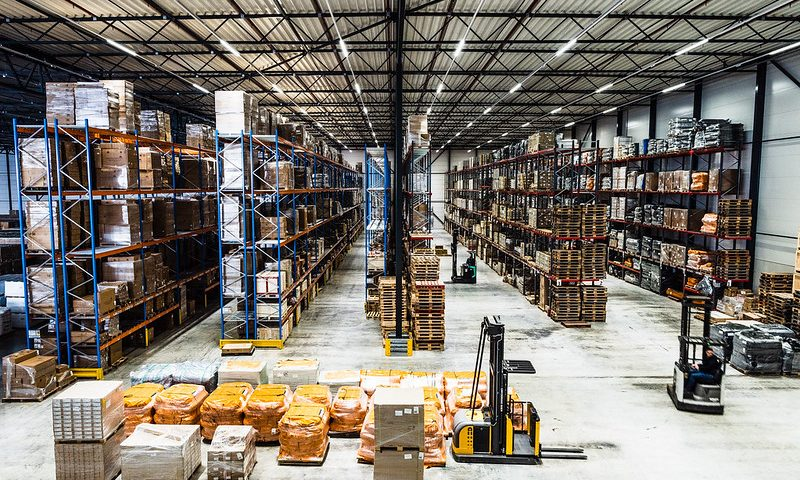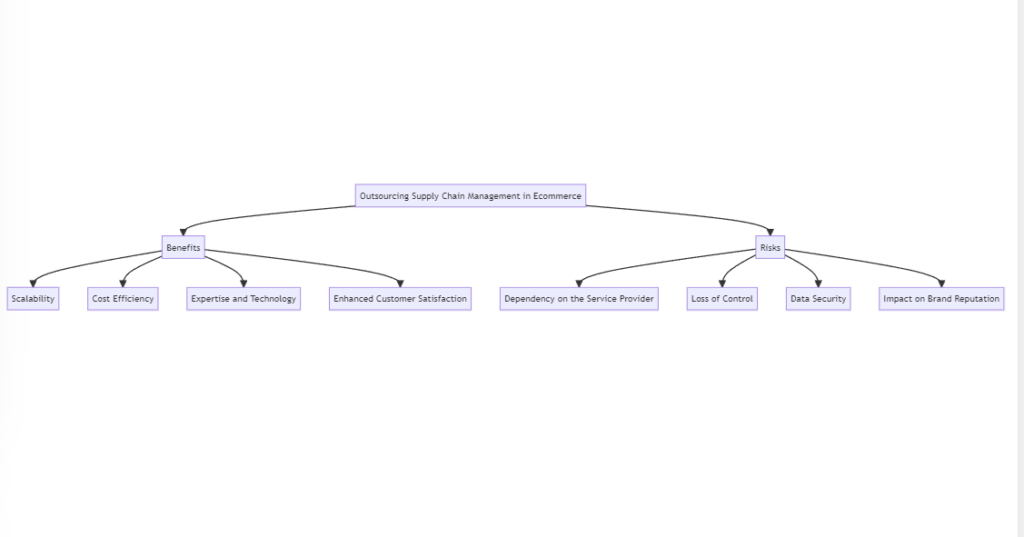
Venturing into the labyrinth of today’s corporate realm, we are confronted with the ever-increasing complexity of supply chain management. A strategic pivot towards outsourced supply chains has emerged as a game-changer, enhancing efficiency, fortifying effectiveness, and simplifying processes. This meticulously crafted guide delves into the mechanics of supply chain outsourcing, illuminating its transformative potential to redefine your business trajectory.
What is an Outsourced Supply Chain?
An outsourced supply chain refers to a system where a company delegates its supply chain operations to third-party logistics (3PL) providers. This delegation includes tasks like warehousing, distribution, fulfillment, and transportation. This strategic move often results in increased efficiency, cost-effectiveness, and focus on core business operations.
Deconstructing Outsourced Supply Chain Processes: An In-depth Analysis
In today’s hyper-competitive business landscape, companies are continuously exploring ways to enhance efficiency, reduce costs, and improve service quality. One such strategic move is to outsource supply chain operations. Outsourcing can encompass various processes across the supply chain spectrum, each offering its unique set of benefits.

Warehousing
Maintaining a warehouse can be a hefty expense for many businesses. Outsourcing warehousing operations to a third-party logistics provider (3PL) can save on costs associated with infrastructure, equipment, and staff. Additionally, 3PL providers usually possess sophisticated warehouse management systems that optimize storage, reduce wastage, and enhance order fulfillment efficiency.
Inventory Management
Inventory management is a critical aspect of a supply chain, ensuring the right products are available at the right time. By outsourcing, businesses can benefit from a provider’s sophisticated inventory management systems that ensure optimal inventory levels, reduce carrying costs, and minimize stockouts or overstocks.
Order Fulfillment
Order fulfillment is the process of receiving, processing, and delivering orders to customers. Outsourcing this process can greatly enhance efficiency and accuracy, leading to improved customer satisfaction. Plus, it can scale quickly to manage peak demand periods.
Distribution
Distribution involves the transportation of goods from the warehouse to the end consumer. By outsourcing, companies can leverage the provider’s established distribution network, ensuring quick and efficient delivery. It also saves businesses from maintaining their own fleet of vehicles.
Reverse Logistics
Managing returns effectively is crucial in today’s e-commerce era where return rates are high. Outsourcing reverse logistics ensures efficient handling of returned goods, including inspection, restocking, refurbishing, or disposal, thus enhancing customer satisfaction and reducing losses.
Supply Chain Strategy
Outsourcing supply chain strategy involves partnering with a 3PL that provides strategic planning services. They can help design and implement a supply chain model that aligns with your business goals and market dynamics.
Outsourced Supply Chains: Tackling Customs & Compliance
Navigating through customs procedures and regulatory compliance can be complex and time-consuming. 3PLs offer services to handle customs clearance and ensure compliance with international trade regulations, reducing the risk of delays or penalties.
Pros and Cons of Outsourced Supply Chains in Ecommerce: An Enlightening Overview
In the high-paced, ever-evolving world of ecommerce, businesses need agile, efficient, and reliable operations to thrive. Outsourcing supply chain management has emerged as a strategic move that can help ecommerce businesses scale operations, reduce costs, and improve customer satisfaction. However, along with the advantages, come certain risks that must be well understood. Let’s explore both.
Gains of Outsourced Ecommerce Supply Chains
Outsourcing the supply chain can bring several benefits to ecommerce businesses.

Scalability
One of the main benefits is the ability to scale operations swiftly. Ecommerce businesses often face fluctuating demand patterns, seasonal peaks, and rapid growth. A professional 3PL can quickly adapt to these changes, ensuring seamless operations regardless of the volume of orders.
Cost Efficiency
Outsourcing can eliminate the need for investment in warehousing, distribution infrastructure, technology, and staff, resulting in significant cost savings. 3PL providers, due to their scale of operations, can also offer more competitive rates for storage and shipping.
Expertise and Technology
3PLs bring in-depth knowledge and experience in managing complex supply chains. They also employ advanced technologies for inventory management, order fulfillment, and tracking, leading to increased accuracy and efficiency.
Enhanced Customer Satisfaction
Faster order processing, efficient delivery, and professional handling of returns, all contribute to an improved customer experience, which is crucial in the competitive ecommerce arena.
Risks of Outsourced Ecommerce Supply Chains
Despite the potential benefits, outsourcing does come with certain risks.
Dependency on the Service Provider
Outsourcing creates a dependency on the 3PL for critical operations. If the provider fails to deliver as expected, it can disrupt operations and impact customer satisfaction.
Loss of Control
With outsourcing, businesses may lose direct control over their supply chain. This loss can be mitigated by establishing clear service level agreements and maintaining open communication with the provider.
Data Security
Supply chain operations involve sensitive data, including customer information. If the 3PL does not have robust data security measures, it can put this information at risk.
Impact on Brand Reputation
Lastly, in the eyes of customers, the performance of the 3PL reflects directly on the brand. Any lapses in service quality, delivery delays, or mishandling of products can negatively impact the brand reputation.

In conclusion, while outsourcing supply chain management can bring considerable benefits for ecommerce businesses, it’s not without its risks. The key lies in careful evaluation and selection of a reliable 3PL partner, along with establishing robust agreements to manage performance and mitigate risks.
Conclusion: Powering Forward with Outsourced Supply Chains
In the evolving business landscape, outsourced supply chains are an asset, capable of empowering businesses with enhanced efficiency, global reach, and reduced operational costs. By understanding its intricacies and following the outlined pathway, you can successfully leverage this asset, propelling your business to new heights. Remember, the key to successful outsourcing lies in aligning it with your business goals and choosing the right partner.
Master the art of outsourced supply chains and revolutionize your business operations today!